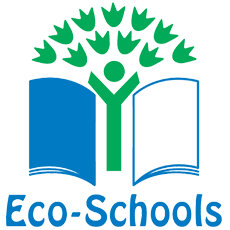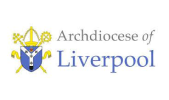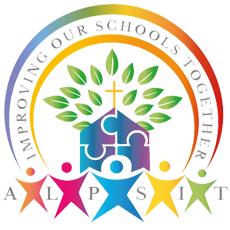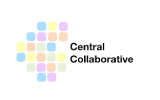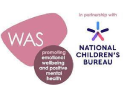Reading
In St Margaret Mary’s Junior School, we value reading as a key life skill and therefore, reading will always feature on the school improvement plan. We intend to ensure all children can read with fluency and understanding, so that they can access the full curriculum. We are dedicated to enabling our pupils to become lifelong readers. It is our intention to ensure that, by the end of their time in our school, all pupils are competent readers who can recommend books to their peers, have a thirst for reading a range of genres including poetry, and participate in discussions about books, including evaluating an author’s use of language and the impact this can have on the reader. The percentage of children meeting the expected standard in reading by the end of key stage two is consistently above the local and national average. Children in our school receive an excellent reading education. As a result of this provision, and because we are constantly adapting and improving our approaches, all children achieve success with reading.
Reading Fluency Research
Reading Comprehension Research
In 2019, our attainment of the expected standard (100+) in reading (which was 89%) was significantly above national and also in the highest 20%.Of the 114 children in the year 6 cohort, just 12 children did not meet the expected standard, but of these, 11 had an average scaled score of 96. |
In 2022, our key stage 2 progress in reading (2.4) was significantly above national and in the highest 20%. |
In 2023, our end of key stage attainment of the expected standard (100+) in reading was 81%. This was above the national.29% of our children achieved the higher standard in reading. Progress in reading was significantly above national (2.14). |
To achieve this success, we implement the following:
Any children who arrive in our school without age appropriate reading skills will be targeted with quality teaching as well as specific intervention. If children are not able to read fluently (90+ words a minute) they will access Read Write Inc. or, for children in upper key stage two, Fresh Start. By delivering this synthetic phonics programme, we ensure the teaching of reading is consistent, rigorous and of the highest quality. Our highly skilled reading lead quality assures sessions, provides regular training and practice sessions for staff and monitors children's progress. Most children are able to move through the programme rapidly. Parents and carers can help children practise phonics and read storybooks at home. Children who are accessing phonics, will also be assigned the appropriately matched e-books and will be able to access a virtual classroom which has over 850 phonics lessons – from decoding practice to supporting fluency.
In the classroom, whole class reading lessons take place every day. All children access appropriately challenging texts, covering both fiction and non-fiction genres: stories, poems, play scripts, newspaper reports, instructions, leaflets, letters. Texts often link to our wider curriculum areas to add depth of knowledge to foundation subjects and to support children's development in writing. Check out our English Curriculum Reading Spine.
We approach our reading lessons with the same teaching protocols we use in all lessons. Our five key teaching strategies (clear and explicit instruction; scaffolding and modelling; use of metacognition strategies; flexible grouping; and use of technology) ensure that all children are provided with the best opportunities to succeed. Our specific reading comprehension strategies are used across school, and are linked to the reading content domains, but they also ensure children have opportunities to achieve success with the non-tested parts of the National Curriculum for reading. This approach is progressive (as the texts increase in difficulty as children move through the school) and is supported by our question stems, and the Steps to Read scheme.
Children are exposed to a wide range of words and phrases both within the texts they read and within the language used in questions. New vocabulary is taught explicitly and displayed on working walls.
Children are given opportunities to discuss and recommend books, to comment on books by the same and different authors, to comment on books with similar themes, to learn poems by heart and to develop a love of literature. We have extracurricular book clubs and a library clubs.
We have created a wide range of book spines, each with its own purpose. Throughout the curriculum, children are exposed to quality texts and have opportunities to read (see individual subject pages for additional book spines).
We are lucky to be able to provide children in our school with a wide range of books. Every class has their own selection of books (non-fiction and fiction). Many books in classrooms link to other curriculum areas studied within that year group; this offers children the opportunity to apply their reading skills across the curriculum and to extend their knowledge beyond classroom learning. Children are given the opportunity to create a wish list for their class library so that each year, every class library is topped up with books the children have selected themselves.
When children are able to read 90+ words a minute, we encourage them to select their own reading books from their class library with the help of their teacher and teaching assistant. Books in each class library are age appropriate and include a rich range of texts made up of the books that teachers, teaching assistants and the children have chosen. In our class libraries, you will find such a wide variety of books: diverse fiction books; non-fiction books; books linked to the wider curriculum; modern and classic literature; poetry books. In fact, you will also find many of the books from our Recommended Reading for Pleasure Book Spine in our class libraries too.
All children have their own reading diary. They keep a record of books they are reading and we ask parents to sign this when they have listened to their child read. Children’s reading diaries are also monitored by adults.
Children are read to by their class teacher or teaching assistant every day. This could be within a reading lesson, but is usually during story time. During this special time, we like our children to just listen to and enjoy the chosen text. Our Story Time Reading Spine has been carefully considered to ensure we are providing all children with a rich reading diet, enjoyment and knowledge and understanding of the world we live in. Some of these books are woven into our English and Class Reading Curriculum.
The books in our Story Time Reading Spine have been selected with the following in mind:
To ensure children deepen their knowledge of books, including classic literature.
To increase children’s understanding of a diverse world.
Many of the books in this spine will be used as P4C stimulus and to help us promote British Values.
To encourage children to think about how the story links to other books they have read.
To help children make links to their own experiences of the world.
To expose children to a wide range of authors that they might not otherwise meet.
The books we have chosen for this spine are likely to be:
Multi-layered and capable of being read at different levels.
Books that deal with important themes.
Books in which language is used in lively and inventive ways.
Books by a range of diverse, skillful and experienced children’s authors.
Traditional and contemporary ‘classics’ of children’s literature.
Stories with different social and cultural settings.
Take a look at the recommended books in our Fiction Texts Reading for Pleasure Spine:
The books in this spine are recommended for children to read for pleasure. The aim is that the books which have been selected here will provide depth and breadth to children's reading. See also our Recommended Non-fiction Reading for Pleasure Spine, our English Curriculum Book Spine and our Story Time Book Spine for even more choice.
Take a look at the recommended books in our Non-fiction Texts Reading for Pleasure Spine:
The purpose of this spine is to share recommendations for children interested in non-fiction books. The books have been selected to support the development of children’s background knowledge covering a wide range of topics - some of which link into our curriculum. Within this spine, you will find books that are high-quality, interesting and enjoyable! These information books promote how the text and the pictures can work together to provide comprehensive information and enjoyable reading whilst broadening knowledge and experience of the world and promoting equality and diversity.
Useful Websites:
To help you understand more about Read Write Inc. Phonics and how to help your child read at home, you can watch tutorials here:
We celebrate World Book Day every year.
Keep an eye on our newsletter for more information about this year's event!
Reading at St Margaret Mary's Junior School




















